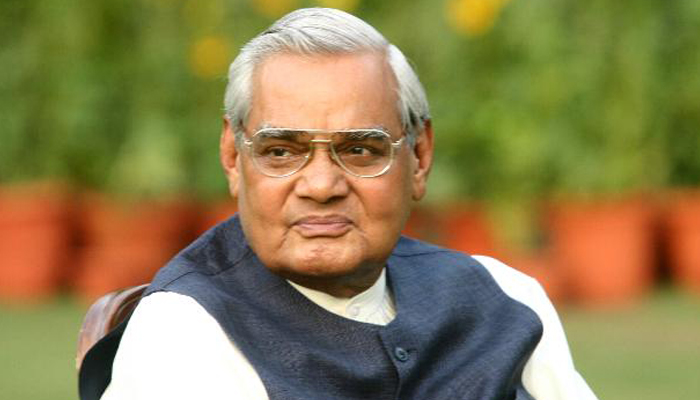TRENDING TAGS :
When Atal Bihari Vajpayee taught the lesson of 'Tehzeeb'
Eulogies have been written about the tehzeeb, a Urdu word translating into etiquette, politeness and political culture of former Prime Minister Atal Bihari Vajpayee, who died on August 16.
Apparently Vajpayee, during his term as Prime Minister 1999-2004, was not happy with the US pressure on India to join the Iraq war. So he invited the opposition party leaders for breakfast to his house. After the initial chit chat, the opposition leaders were keen to know why they were invited. Vajpayee told them about the US pressure on India, to which the leaders said that they will oppose it and the people's agitation was already on. Vajpayee replied that he is not hearing the noise of an agitation! The opposition leaders immediately understood the drift of the conversation -- that they had to double their efforts to raise public opinion against US so that Vajpayee could use it to stall the pressure.
Contrast this with the present dispensation where a direct onslaught has been launched on the opposition to create fear. We somehow have lost the tehzeeb in the present political and other discourses.
ALSO READ: These quotes of Atal Bihari Vajpayee will keep inspiring us
Former Defence Minister K.C. Pant, a very dear friend of mine, told me of another instance of such tehzeeb.
Sarvapalli Radhakrishnan, the second President of India, wanted another term. He said that Rajendra Prasad got it so should he. Jawaharlal Nehru, the Prime Minister, was not keen on this. Naturally, Radhakrishnan was unhappy and used to complain about it and threatened to return to his teaching career.
Nehru sent Maulana Abul Kalam Azad to placate Radhakrishnan. Azad was a very cultured person and a doyen of the Independence movement. Azad engaged Radhakrishnan in small talk but Radhakrishnan was angry and knew the purpose of Azad's visit. So he retorted that he was not interested in a second term and would go back to teaching. To which Azad asked politely: In which university? Radhakrishnan got the message.
A similar story about the wit and tehzeeb of Pandit Govind Ballabh Pant was told to me by Sunder Lal, a former Member of Parliament of the Congress Party. Sunder Lal was the youngest MP in 1952 and remained an MP till 1986, the year he died.
I think the incident was in the early 1950s when Uttar Pradesh was facing a tremendous drought, especially in the eastern part from where Raj Narain came. Raj Narain was quite a hooligan and believed in creating a ruckus in the assembly and was among the first to create the shouting brigades that we see today in Assemblies and in Parliament. At that time he was an MLA and Pant was the state's Chief Minister.
During one of the debates, he created a ruckus in the Assembly by shouting at the top of his voice and stating that a great famine was taking place in his constituency and farmers are dying, whereas the Chief Minister was unconcerned and was only interested in his chair and hobnobbing with industrialists.
ALSO READ: Which of Vajpayee’s bequests will the BJP honour?
Pant rose to answer Raj Narain and said he had known him for a long time and as a socialist and follower of Jai Prakash Narayan and Ram Manohar Lohia he had great regard for him and his sincerity. Then he said politely but firmly: "I also know that had the situation been really that grim, Raj Narain being a very committed worker, would not be sitting here in the assembly but tending to his poor farmers." The assembly erupted in peels of laughter and Raj Narain quietly sat down.
Such wit and tehzeeb, which was also the Vajpayee's hallmark, is missing in the present parliamentary debates.
I think one of the reasons of why we have lost the art of debate and discourse is that we do not teach children debating skills in school. I wish the youngsters are taught, cajoled and inspired by great discourse and debate. Unfortunately, in the present schooling systems, where the pressure of passing exams is paramount, such debates and discourse are missing.
IANS



